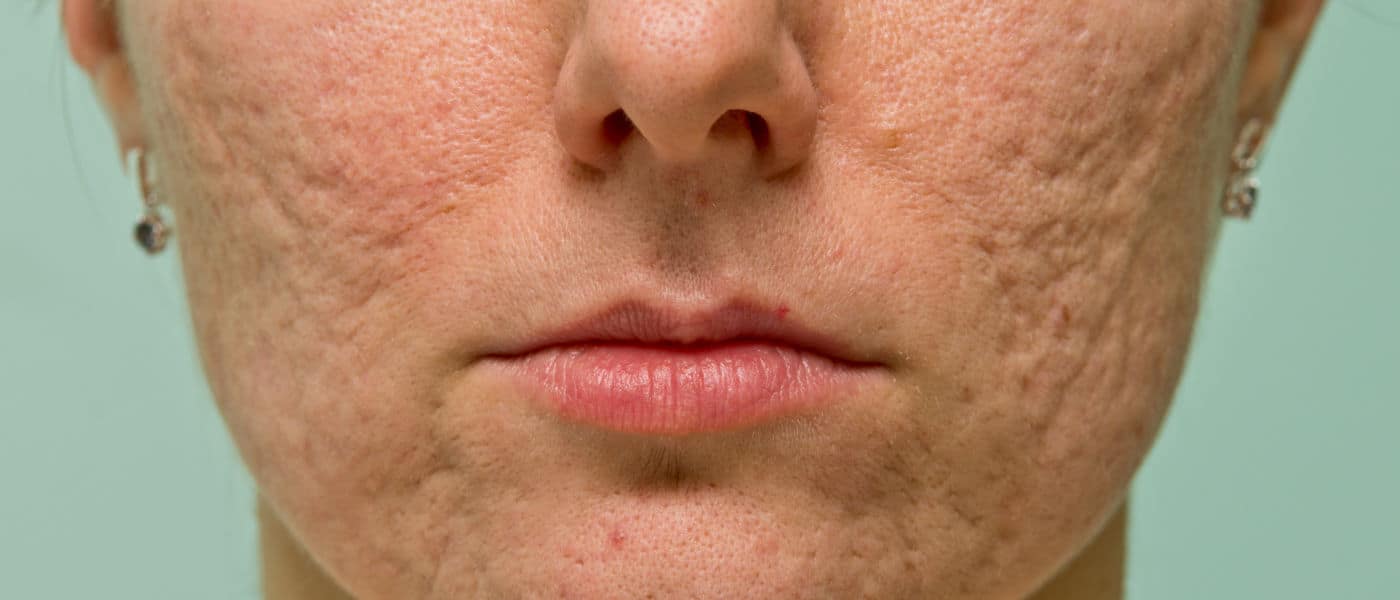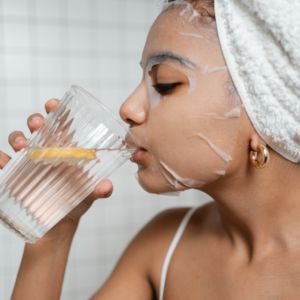Acne is the medical term used to describe breakouts. For many of us, our first experience of the condition is during puberty when our bodies start to produce higher levels of the hormone testosterone. The sebaceous glands in our skin are very sensitive to even small changes in the level of testosterone and begin to step up production of sebum, the natural oil produced by our skin, as a result. This sebum mixes with dead skin cells and gets trapped in our pores creating an ideal environment for bacteria to thrive. These factors combine to cause inflammation in the skin leading to the development of acne.
In its mildest form, acne is responsible for causing occasional spots or pimples. Whilst most of us can manage this at home by using appropriate store-bought products, some people develop a more severe form of the condition that doesn’t go away despite following a good skincare routine. Examples of this include breakouts occurring at multiple sites on the face and body or the appearance of deep, tender nodules and cysts that can lead to permanent scarring if not properly controlled (as shown in the photo above). In these situations, it is important to seek advice from a Dermatologist as prescription treatment is likely to be necessary. Expert help should also be sought if acne is causing loss of self-esteem, anxiety or feelings of embarrassment and social isolation.
Whether you are designing a skincare routine at home or following a treatment plan from a Dermatologist, it is essential that the products you use are specifically intended for blemish- prone skin. Key ingredients to look out for include salicylic acid which stops the build up of dead skin cells and zinc, tea tree or witch hazel which are great for soothing inflammation so check for these on product labels. Using the wrong products, or indeed using too many products, can actually make the problem worse.
Start by cleansing your face both morning and night. Acne can cause the skin to be red, bumpy and inflamed so a cleanser designed for sensitive skin is a good solution for this. Massage it gently into the skin before rinsing well with lukewarm water and use a soft cloth or flannel to pat dry.
I’m not generally a big fan of toners, but for those with greasy skin a toner can be applied next. It is important to recognise that many acne treatments work by reducing oil production and will dry the skin themselves. A gentle tonifying lotion may be tolerated better than ordinary toner in these circumstances as there is less risk of drying the skin out too much. An alternative to this if skin remains greasy is to use pre-prepared pads soaked in glycolic and salicylic acid.
The final step in the routine is to use a lightweight moisturiser twice a day to nourish and maintain a healthy skin barrier (unless your skin is exceptionally oily). Looking for the words “non-comedogenic” (meaning non pore-blocking) on the packaging can help guide you to the most appropriate choices. The same goes for sun protection products and makeup which also need to be chosen carefully. I would use a sun protection moisturiser in the morning and a plain moisturiser at night.
Finally, grainy scrubs and vigorous rubbing are best avoided in very inflamed acne and squeezing or picking spots is also strongly discouraged as this increases the risk of infection and scarring. Using a clay or charcoal mask once or twice a week is a much better way to draw impurities out of the skin in combination with appropriate acne treatment.
If you are following this advice and find that you are not getting the results you need, or if you believe that you are suffering with one of the more severe forms of acne described, please make an appointment to see your GP or Dermatologist for advice.
© 2018 Dr Justine Kluk. Any redistribution or reproduction of part or all of the contents of this post in any form is prohibited. You may not, except with our express written permission, copy, distribute or commercially exploit the content. Nor may you transmit it or store it in any other website or other form of electronic retrieval system.






